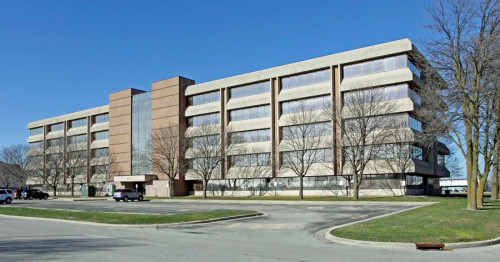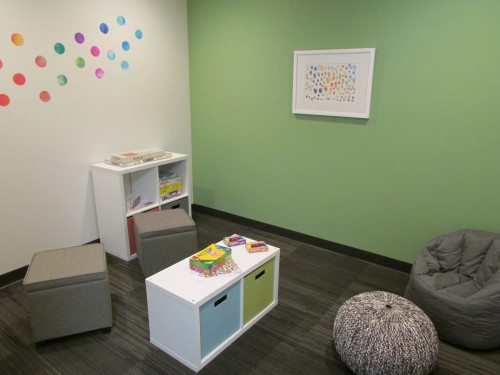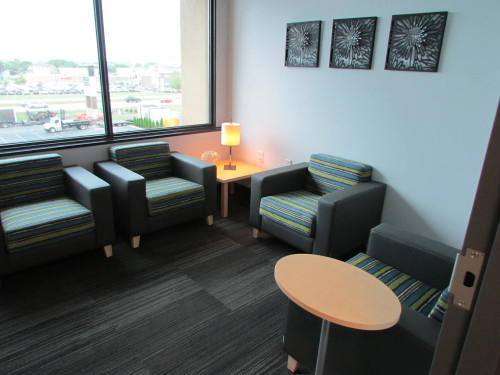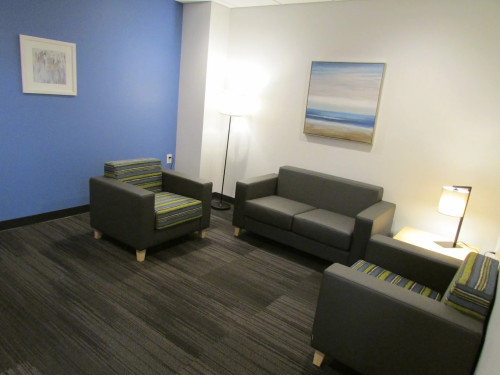






Christian Family Solutions - Appleton Counseling Clinic
Treatment Focus
This center treats mental health conditions and co-occurring substance use. You receive collaborative, individualized treatment that addresses both issues for whole-person healing.
Primary Level of Care
Outpatient treatment offers flexible therapeutic and medical care without the need to stay overnight in a hospital or inpatient facility. Some centers off intensive outpatient program (IOP), which falls between inpatient care and traditional outpatient service.
This provider hasn't verified their profile's information. Are you the owner of this center? Claim your listing to better manage your presence on Recovery.com.
Treatment Focus
This center treats mental health conditions and co-occurring substance use. You receive collaborative, individualized treatment that addresses both issues for whole-person healing.
Primary Level of Care
Outpatient treatment offers flexible therapeutic and medical care without the need to stay overnight in a hospital or inpatient facility. Some centers off intensive outpatient program (IOP), which falls between inpatient care and traditional outpatient service.
Provider's Policy
Christian Family Solutions accepts many insurance plans and offers a sliding fee scale based on income. Telehealth coverage may vary, check with your provider. Clients can also pay out of pocket if uninsured or choosing not to use insurance.
Christian Family Solutions - Appleton Counseling Clinic
Christian Family Solutions - Appleton Counseling Clinic
About Christian Family Solutions - Appleton Counseling Clinic
Just off Highway 41, Christian Family Solutions provides specialized care for anxiety, depression, bipolar disorder, trauma-related symptoms, and other emotional challenges. Their programs include Christian-integrated counseling for all ages, a DBT-based intensive outpatient program (IOP) for adults, and an online day treatment (PHP) program for adolescents. With both in-person and virtual options, CFS helps individuals build emotional strength, stability, and purpose.
Supporting Therapies and Approach
The clinical team uses dialectical behavior therapy (DBT), cognitive behavioral therapy (CBT), experiential therapies, supportive counseling, and faith-informed guidance to build emotional balance and practical coping skills. Evidence-based strategies blend with spiritual insight when desired, helping clients manage intense feelings and rebuild healthier thinking. Medication management and case coordination strengthen continuity of care, while structured sessions give people consistent guidance and motivation as they move forward.
Distinct Programs and Daily Structure
Adults in the IOP program attend morning DBT groups four days a week, with each session lasting three hours. Groups are led by licensed therapists and supported by access to a 24-hour crisis line. The program focuses on DBT core skills, including emotion regulation, interpersonal effectiveness, and distress tolerance, and includes opportunities for individual therapy and medication support.
Adolescents take part in a virtual day treatment (PHP) program that helps them manage strong emotions and risky behaviors like self-harm or outbursts. Each day, teens join group therapy sessions online. They also meet weekly for one-on-one counseling and family therapy. The program uses DBT, CBT, and art activities to teach healthy ways to cope. Since it’s fully online, teens can stay at home while still getting strong support.

Center Overview
Treatment Focus
This center treats mental health conditions and co-occurring substance use. You receive collaborative, individualized treatment that addresses both issues for whole-person healing.

Insurance Accepted
Cash Pay Rates
Estimated Cash Pay Rate
Center pricing can vary based on program and length of stay. Contact the center for more information. Recovery.com strives for price transparency so you can make an informed decision.
Levels of Care







Your Care Options
Specializations
Adolescents
Teens receive the treatment they need for mental health disorders and addiction, with the added support of educational and vocational services.
Anxiety
Anxiety is a common mental health condition that can include excessive worry, panic attacks, physical tension, and increased blood pressure.
Bipolar
This mental health condition is characterized by extreme mood swings between depression, mania, and remission.
Depression
Symptoms of depression may include fatigue, a sense of numbness, and loss of interest in activities. This condition can range from mild to severe.
Christian
Through surrender and commitment to Christ, patients refocus the efforts and source of their recovery with clinical and spiritual care.
Who We Treat
Adolescents
Teens receive the treatment they need for mental health disorders and addiction, with the added support of educational and vocational services.
Men and Women
Men and women attend treatment for addiction in a co-ed setting, going to therapy groups together to share experiences, struggles, and successes.
Approaches
Evidence-Based
A combination of scientifically rooted therapies and treatments make up evidence-based care, defined by their measured and proven results.
Family Involvement
Providers involve family in the treatment of their loved one through family therapy, visits, or both–because addiction is a family disease.
Individual Treatment
Individual care meets the needs of each patient, using personalized treatment to provide them the most relevant care and greatest chance of success.
Christian
Through surrender and commitment to Christ, patients refocus the efforts and source of their recovery with clinical and spiritual care.
Therapies
1-on-1 Counseling
Patient and therapist meet 1-on-1 to work through difficult emotions and behavioral challenges in a personal, private setting.
Online Therapy
Patients can connect with a therapist via videochat, messaging, email, or phone. Remote therapy makes treatment more accessible.
Art Therapy
Visual art invites patients to examine the emotions within their work, focusing on the process of creativity and its gentle therapeutic power.
Expressive Arts
Creative processes like art, writing, or dance use inner creative desires to help boost confidence, emotional growth, and initiate change.
Family Therapy
Family therapy addresses group dynamics within a family system, with a focus on improving communication and interrupting unhealthy relationship patterns.
Life Skills
Teaching life skills like cooking, cleaning, clear communication, and even basic math provides a strong foundation for continued recovery.
Psychoeducation
This method combines treatment with education, teaching patients about different paths toward recovery. This empowers them to make more effective decisions.
Conditions We Treat
Anxiety
Anxiety is a common mental health condition that can include excessive worry, panic attacks, physical tension, and increased blood pressure.
Bipolar
This mental health condition is characterized by extreme mood swings between depression, mania, and remission.
Burnout
Burnout entails mental and physical exhaustion, and leads to a severe lack of fulfillment. This condition is often caused by overwork.
Depression
Symptoms of depression may include fatigue, a sense of numbness, and loss of interest in activities. This condition can range from mild to severe.
Stress
Stress is a natural reaction to challenges, and it can even help you adapt. However, chronic stress can cause physical and mental health issues.
Trauma
Some traumatic events are so disturbing that they cause long-term mental health problems. Those ongoing issues can also be referred to as "trauma."
Substances We Treat
Co-Occurring Disorders
A person with multiple mental health diagnoses, such as addiction and depression, has co-occurring disorders also called dual diagnosis.
Languages
Aftercare
Care Designed for Your Needs
Special Considerations
Religion-Based Track
Patients can join faith-based recovery tracks to approach recovery with others in their faith, healing in a like-minded group with similar goals.
Smoking and Vaping Policy






